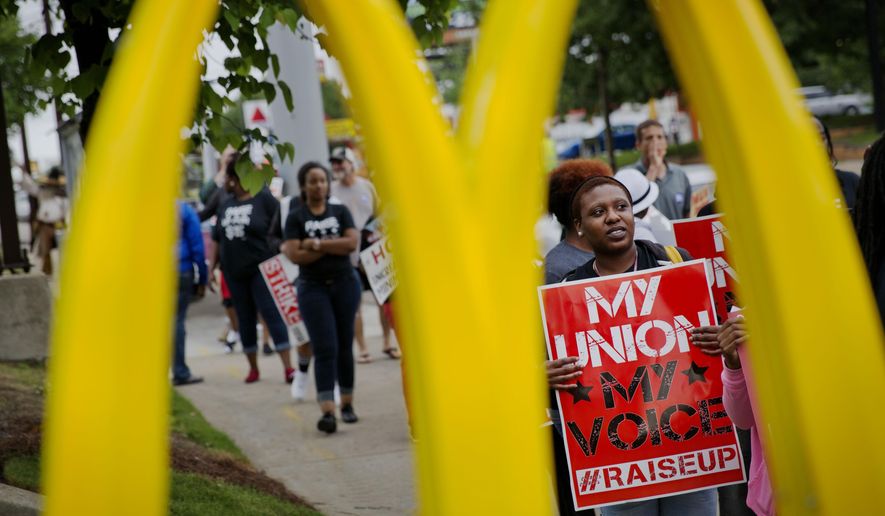Business groups say they’re gearing up to defend against what they believe to be the next front in the battle with organized labor: the franchise model used by McDonald’s and other iconic brands.
The International Franchise Association says Labor Day demonstrations scheduled this week at restaurant chains in North Carolina — a Wendy’s in Greensboro and a Bojangles in Raleigh among them — are proof that labor unions see franchise workers as a key new target to expand their own membership.
In a closely watched decision, the National Labor Relations Board’s general counsel said last month that McDonald’s, as a corporate entity, could be held jointly liable with its franchises for wage and labor violations. The decision is limited to the well-known burger chain, but business advocates said it portends a slippery slope as other cases wend their way through the NRLB.
“It’s definitely a trend and it’s definitely cause for concern,” said Rob Green, executive director of the chain restaurant division of the National Retail Federation.
The franchise model allows fast-food chains and other retailers to sell a company’s products and services in exchange for regular fees. Although linked to well-known brands, the stores and restaurants operate as small businesses in their corners of the country.
But if the McDonald’s ruling were expanded to other companies and spilled over to labor organizing, it could mean an entire chain’s workforce could be unionized in one vote, rather than the current franchise-by-franchise process that makes the workers less attractive for labor unions’ efforts.
SEE ALSO: Obama uses Labor Day holiday to push for higher minimum wage
The unions say they’re not pressing ahead just yet, saying they want to take stock of what the McDonald’s ruling means.
“We’re looking at that right now,” AFL-CIO President Richard Trumka told reporters last week at a breakfast hosted by the Christian Science Monitor. “It really takes a while to go up the food chain. It’s not as simple as people think to figure out who is the controlling entity. We are working though all that stuff.”
He said unions would come up with “new strategies” to organize fast food restaurants and other franchise businesses.
The National Employment Law Project, a labor think tank, said in a statement after the McDonald’s ruling that the crux was how much control the parent corporation had over its franchises, and the decision doesn’t mean the end of franchising.
Franchise groups, though, fear what could be coming.
In June, the IFA and several franchisees sued the city of Seattle over how it is implementing its minimum wage hike to $15-per-hour.
SEE ALSO: 101 arrested as protesters storm McDonald’s HQ demanding $15/hr. pay
Employers with 500 or more workers must phase in the hike within three years, while those with fewer employers have seven years. The city’s franchises are being treated as large employers because they are part of a corporate network, meaning they must phase in the minimum wage quickly.
“A single hotel or restaurant can be treated as if it employs more than 500 people even when it actually employs only 15 people,” the IFA’s lawyer, former U.S. Solicitor General Paul D. Clement, said upon filing the suit. “We’re asking the federal court to stop this unfair attack on small business owners who happen to be franchisees.”
• S.A. Miller contributed to this report.
• Tom Howell Jr. can be reached at thowell@washingtontimes.com.




Please read our comment policy before commenting.